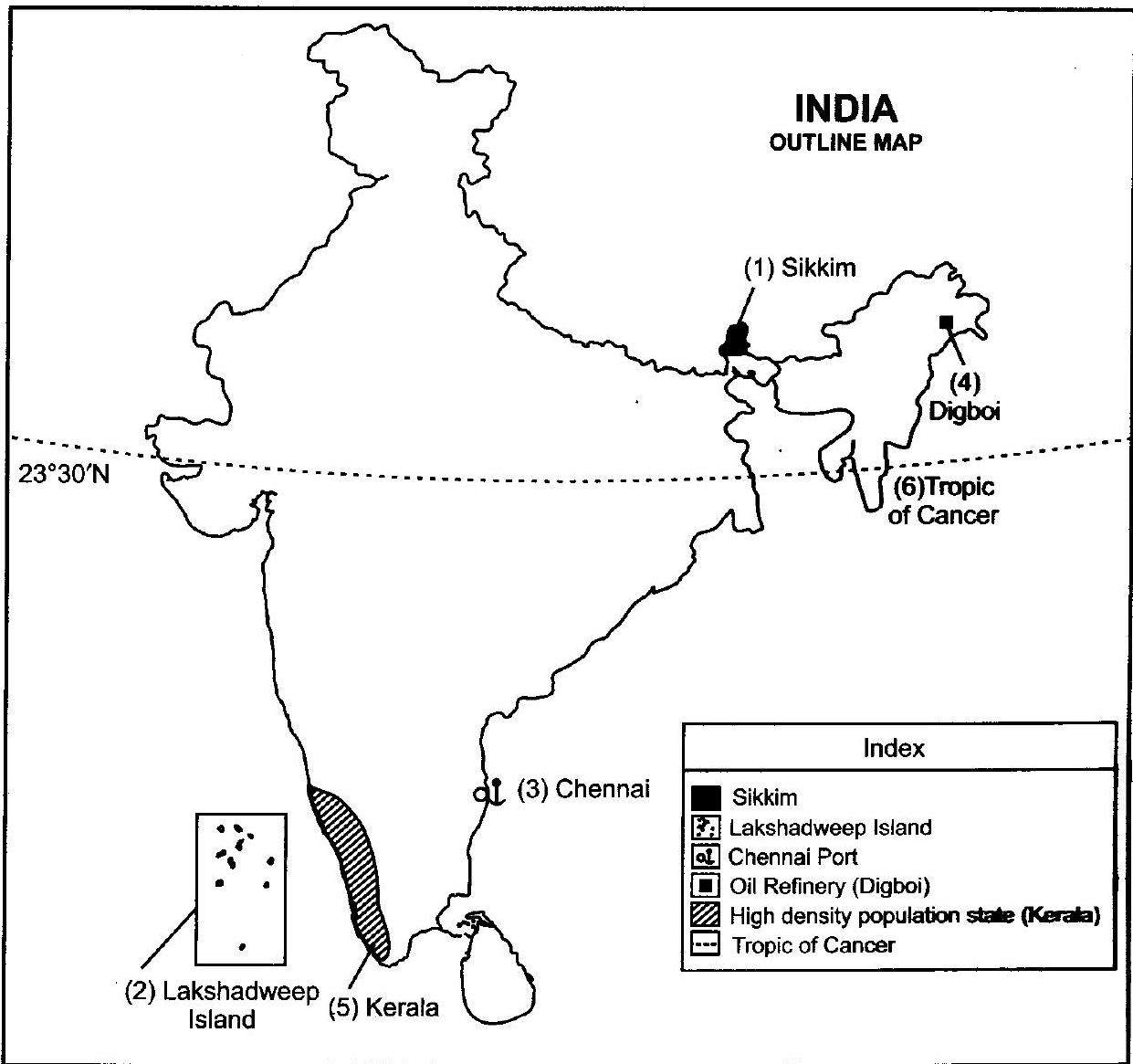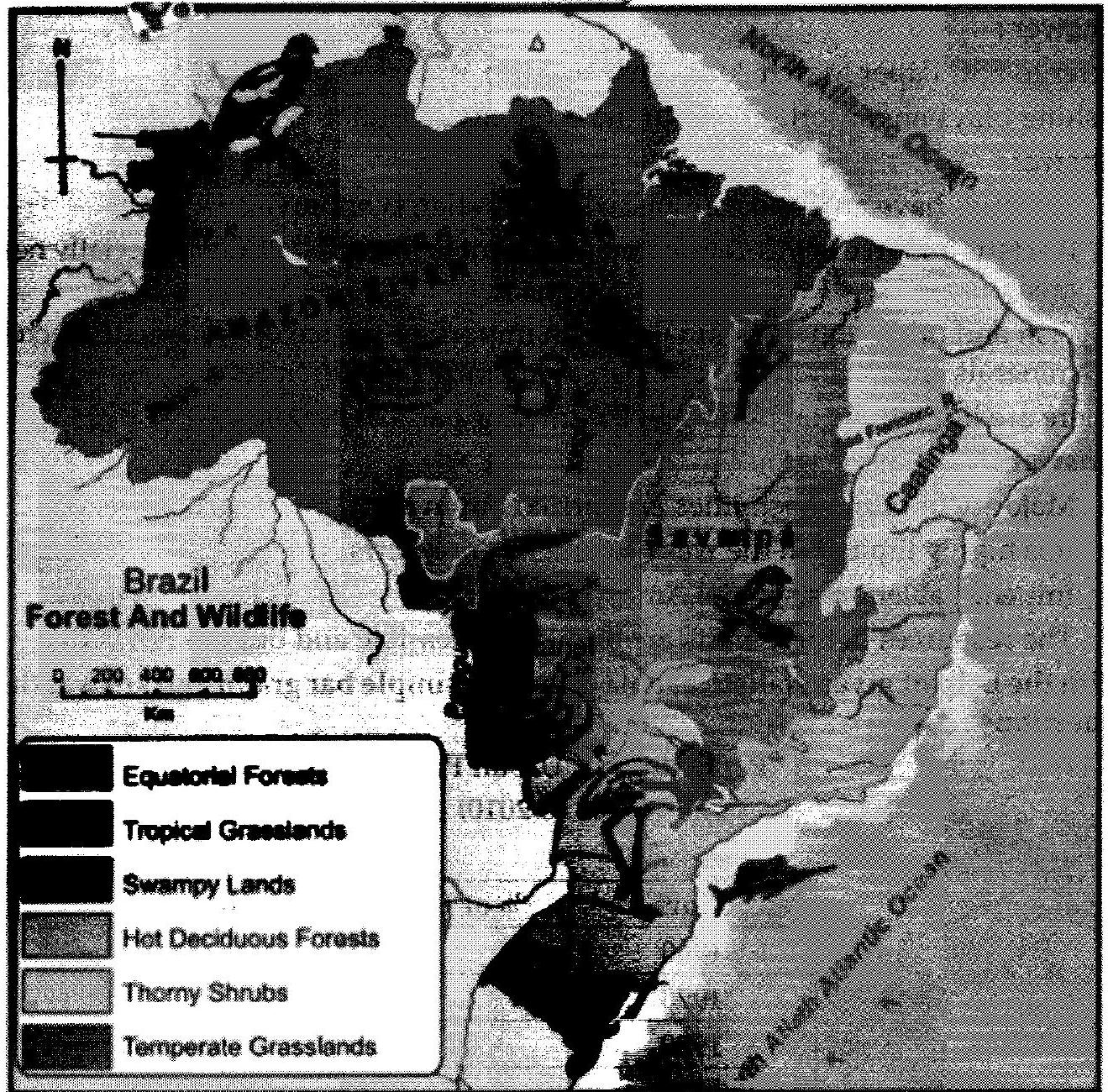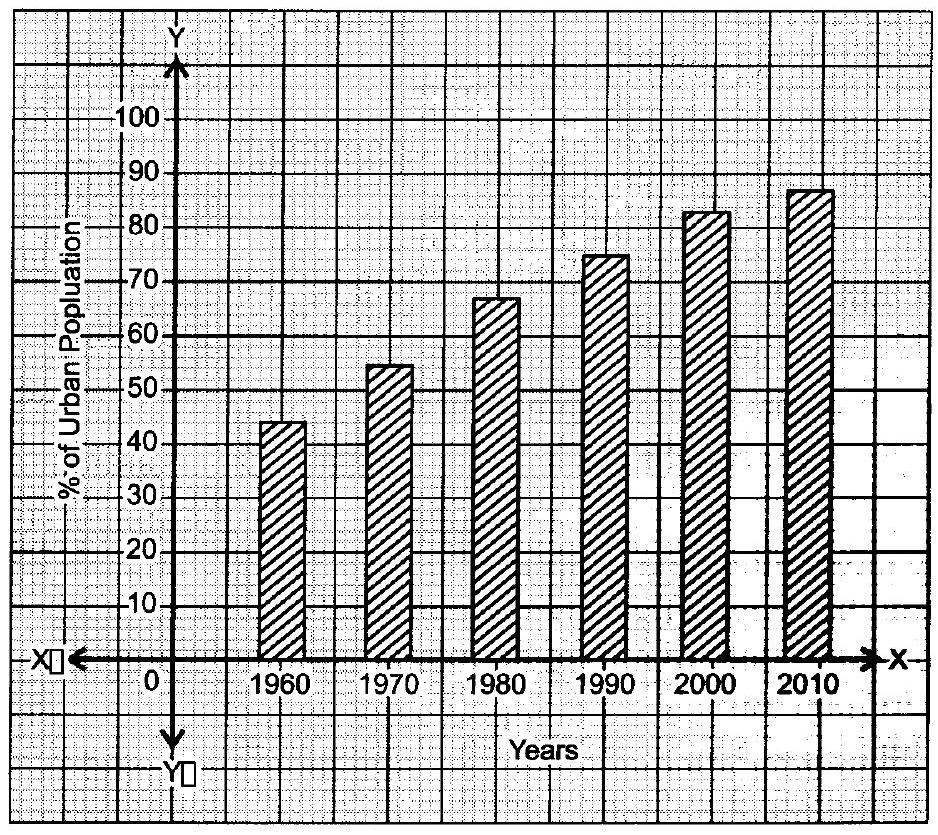APRIL 2022
GEOGRAPHY
Q. 1. Complete the following sentences by choosing the appropriate alternatives from those given and rewrite the sentences in your answer-book:
(1) India is located in the …………………………. hemispheres of the earth.
(i) Northem and Eastem
(ii) Southern and Western
(iii) Northem and Western
(iv) Southern and Eastern
Answer : (i) Northern and Eastern
(2) Brazil gets rainfall from south-east and north-east …………………………. winds.
(i) Monsoon
(ii) Trade (eastern)
(iii) Anti-trade
(iv) Cyclonic
Answer : (ii) Trade (eastern)
(3) The economies of India and Brazil are of the …………………………. type.
(i) Underdeveloped
(ii) Developed
(iii) Highly developed
(iv) Developing
Answer : (iv) Developing.
(4) Brazil is covered mainly by………………………….
(i) Plains
(ii) Highlands
(iii) Mountainous region
(iv) Dissected hills
Answer : (ii) Highlands
Q. 2 Match the following :
‘A’
(1) Field Visit (i) Tourist place
(2) Pico De Neblina (ii) Goa
(3) Most Urbanised State (iii) Sample questionnaire
(4) Rio de Janeiro (iv) Himachal Pradesh
(v) Highest peak in Brazil
Answer :
‘A’ ‘B’
(1) Field Visit (iii) Sample questionnaire
(2) Pico De Neblina (v) Highest peak in Brazil
(3) Most Urbanised State (ii) Goa
(4) Rio de Janeiro (i) Tourist place
Q. 3. Answer the following in one sentence (any four)
(1) What is the rainshadow region in Brazil called?
Answer : The is rainshadow region in Brazil.
(2) Which is the popular sport of Brazil?
Answer : Football is the popular sport of Brazil.
(3) Areawise which is the largest state in India?
Answer : Areawise Rajasthan is the largest state in India.
(4) Which longitude in India is considered as Indian Standard Time?
Answer : is the longitude in India which is considered as Indian Standard Time.
(5) What type of agriculture is mainly practised in India?
Answer : Subsistence agriculture is mainly practiced in India.
Q. 4. (A) Mark the following in the outline map of India supplied to you, write the names and give index (any four) :
(1) Sikkim
(2) Lakshadweep Island
(3) Chennai Port
(4) Mineral oil refineries in Assam – Digboi
(5) Any one southern state with high density of population
(6) Tropic of Cancer
Answer :

(B) Observe the given map and answer the questions given below it (any four) :

Questions :
(1) Name any two forests in Brazil.
Answer : Equatorial forests and hot deciduous forests.
(2) Name the Island shown in the map.
Answer : Marajo Island.
(3) In which place do you find crocodiles?
Answer : Pantanal.
(4) Where are Tamairin found in Brazil ?
Answer : Amazon rainforests of Brazil.
(5) Name the grassland to the southernmost part of Brazil.
Answer : Pampas is the southernmost part of Brazil.
Q. 5. Give geographical reasons for the following (any two) :
(1) Deciduous type of vegetation are found in India.
Answer :
- It’s mostly found along the foothills of the Himalayas, eastern slopes of the Western Ghats and Odisha. Moreover, these regions experience hot climate throughout the year. Due to this, deciduous forests are found here and also these regions receive rainfall between to .
- Teak, Sal, Shisham, Hura, Mahua, Amla, Semul, Kusum and Sandalwood, etc. are main species of the most deciduous forests.
(2) Eco-tourism is being developed more in Brazil.
Answer :
Refer to SSC Paper March 2023, Answer 5. (2).
(3) Fishing plays an important role in the economy of India.
Answer :
- Fisheries have an important place in the Indian economy.
- It acts as a source of income and employment to many fishermen especially nearby coastal areas.
- Fish and other aquatic animals are an important source of food as it is rich in proteins, minerals and vitamins that help in augmenting nutrition level.
(4) There are limitations on mining in the interior parts of Brazil.
Answer :
- Majority of mining activities are carried out in the eastern part of Brazil.
- It is highly limited in the westem and interior parts.
- Impenetrable forests in the Amazan basin.
- The resources in these parts are highly inaccessible and out of knowledge.
Q. 6. (A) With the help of given statistical data prepare a simple bargrhand ander the following questions :
Percentage of Urban Population-Brazil (1960 to 2010)
Years | % of Urban Population |
1960 | 47.1 |
1970 | 56.8 |
1980 | 66.0 |
1990 | 74.6 |
2000 | 81.5 |
2010 | 84.6 |
Answer :

Questions :
(1) What does the above line graph show?
Answer : It shows percentage of urban population in Brazil.
(2) In which decade urbanisation occurred slowly?
Answer : 2000 to 2010.
(3) What was the percentage of increase in urbanisation during the period from 1980 to 1990 ?
Answer : 8.6 per cent.
OR
(B) Observe the following graph and answer the given questions :
Life Expectancy :

Questions :
(1) What is the average life expectancy in India in the year 2016 ?
Answer : 68 years.
(2) In the year 1990, how much was an increase in life expectancy in Brazil as compared to India?
Answer : 7 years.
(3) How much was the average life expectancy in 1980 in India, during which year do you find the same in Brazil?
Answer : 54 years was the average life expectancy in 1980 in India, while the same was achieved by Brazil during 1960.
(4) Which country shows an increase in life expectancy during the period from 2010 to 2016 ?
Answer: Brazil shows an increase in life expectancy during that time.
(5) In which country do you find high life expectancy?
Answer : Brazil has high life expectancy than India.
(6) By how much was India’s life expectancy lesser than Brazil in the year 1960 ?
Answer : 13 years.
Q. 7. Answer the following questions in detail
(1) If you were a part of field visit, what preparations would you make? Prepare a questionnaire for a field visit to a forest.
Answer :
- What is the name of the forest area?
- Which type of plants and trees are there?
- Which habitats are found there?
- What type of climate is found there?
- What is range of rainfall?
(2) Compare the climate of Brazil and India.
Answer : Climate of India :
- India has a monsoon type of climate.
- The average temperature is higher throughout the year since the sunrays are perpendicular up to the Tropic of Cancer.
- There is high temperature variation found in northern belt of India because during summer season this region experiences extreme hot and during winter season this region experiences extreme cold.
- India receives rainfall due to the south-west monsoon winds and the rainfall is mainly of orographic type.
- Tropical cyclones occur frequently in coastal areas of India.
Climate in Brazil :
- Brazil experiences wide range of variations in climate.
For example, climate is hot near the equator while it is temperate near the Tropic of Capricorn.
- The equator cuts passes through the northern part of the country which results in to of average temperature in Amazon valley. The temperature is generally hot here while in the southern part, temperature is comparatively cooler.
- It receives the orographic type of rainfall from the south-east trade winds and north-east trade winds. Tropical cyclones rarely visit the coasts of Brazil.
(3) Explain the characteristics of North Indian Plains.
Answer :
- It is mostly a flat lowlying area, lies between Himalaya mountains in the north and the Peninsular Plateau in the south.
- Also, it extends from Rajasthan and Punjab in the west to Assam in the east.
- The North Indian Plains are divided into two sub-divisions, i.e., Ganga basin and the Brahmaputra valley.
- The part lying to the east of the Aravalis is the Ganga basin and is therefore known as the Ganga Plains which slopes eastward.
- Most of the parts of West Bengal and Bangladesh together constitute the delta of GangaBrahmaputra system. It is known as Sunderbans which is the world’s largest delta.
- The western part of the North Indian Plains is occupied by desert. It is also known as the Thar Desert or Marusthali.
- To the north of the desert lie the Punjab Plains which are formed due to the depositional work by river Sutlej and its tributaries.